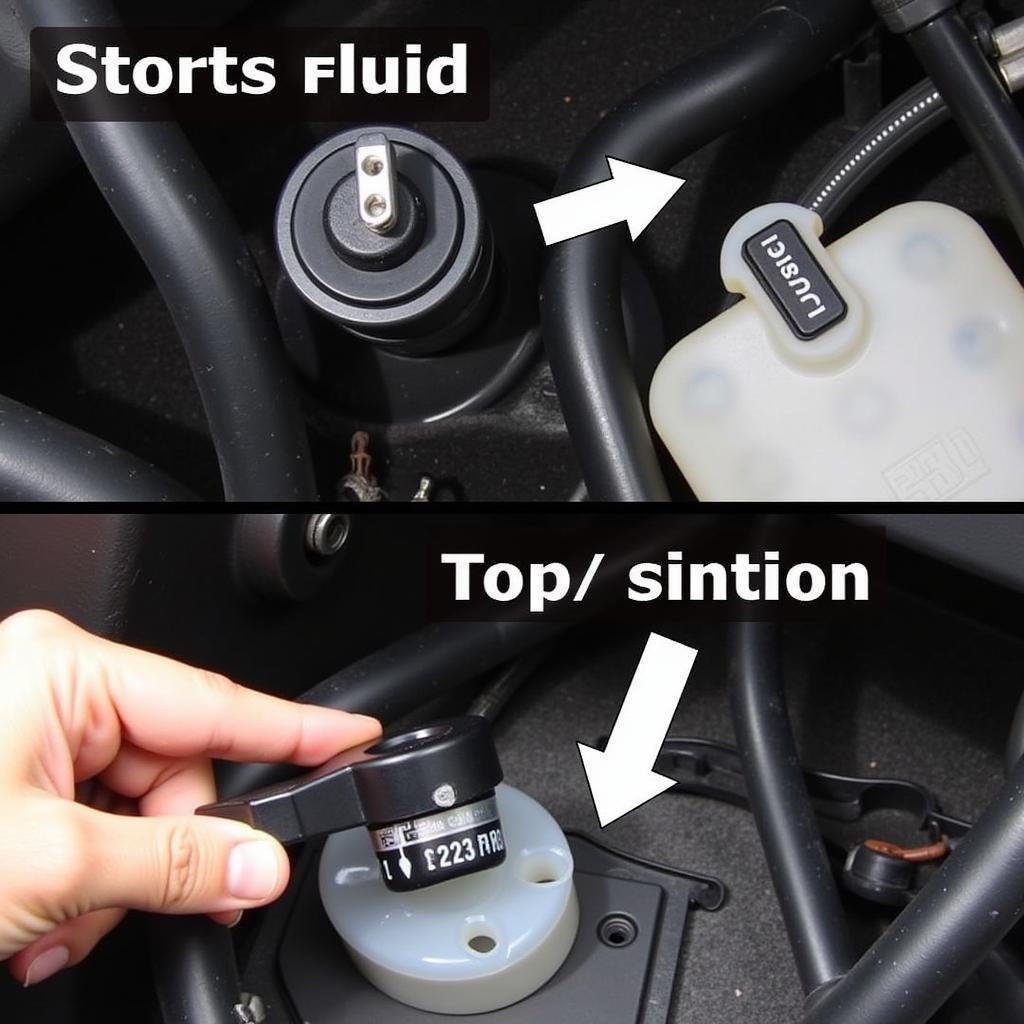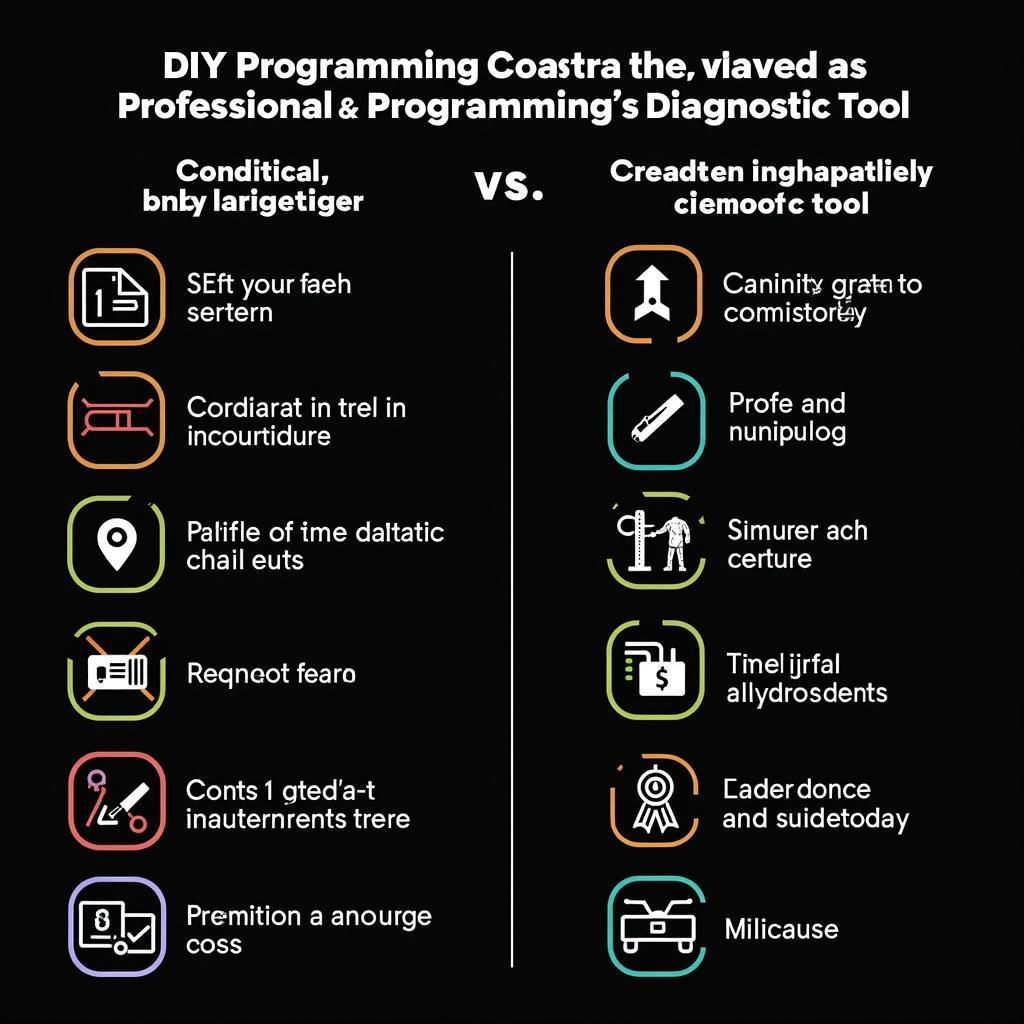The brake warning light on your Jeep Cherokee is a crucial safety indicator. Ignoring it could lead to serious braking issues and compromise your safety on the road. This comprehensive guide will delve into the common causes of a brake warning light on a Jeep Cherokee and provide you with practical solutions, from simple checks to more advanced diagnostic techniques.
The brake warning light can be triggered by various issues, ranging from low brake fluid levels to more complex problems with the braking system components. Understanding these potential causes is the first step in resolving the issue. Let’s explore some of the most common reasons why your Jeep Cherokee’s brake warning light might be illuminated.
Common Causes of a Brake Warning Light
A glowing brake warning light can be a driver’s nightmare. Several factors can trigger this warning, and knowing what they are is crucial for efficient troubleshooting. 2011 jeep grand cherokee brake warning light offers some additional information on this topic. Here’s a breakdown of common culprits:
- Low Brake Fluid: This is often the most straightforward cause. A leak in the brake lines or worn brake pads can deplete the brake fluid, triggering the warning light.
- Worn Brake Pads: Brake pads have wear indicators that activate the warning light when they become too thin, signaling the need for replacement.
- Faulty Brake Sensor: A malfunctioning brake sensor can send incorrect signals to the car’s computer, illuminating the warning light even if there’s no actual problem with the brakes.
- ABS Issues: Problems with the Anti-lock Braking System (ABS), such as a faulty ABS module or sensor, can also activate the brake warning light.
- Parking Brake Engaged: Sometimes, the simple oversight of leaving the parking brake engaged can trigger the light. Always double-check before driving.
Diagnosing the Problem: A Step-by-Step Guide
Now that we’ve identified the potential causes, let’s delve into diagnosing the problem. This systematic approach will help you pinpoint the issue accurately. brake warning light on jeep grand cherokee provides more in-depth information.
- Check the Parking Brake: Ensure the parking brake is fully released. This might seem obvious, but it’s a common oversight.
- Inspect Brake Fluid Level: Locate the brake fluid reservoir under the hood and check the fluid level. If it’s low, add the recommended brake fluid type. If the fluid level drops quickly again, suspect a leak.
- Examine Brake Pads: Visually inspect the brake pads through the wheel spokes. If they appear thin or worn, they likely need replacement.
- Check for Leaks: Look for signs of brake fluid leaks around the brake lines, calipers, and wheel cylinders. Leaks can appear as wet spots or drips.
 Checking Jeep Cherokee Brake Fluid Level
Checking Jeep Cherokee Brake Fluid Level
Advanced Diagnostics and Solutions
If the basic checks don’t reveal the cause, more advanced diagnostic tools may be necessary. These can help identify issues with the ABS or brake sensors. 2005 jeep grand cherokee brake warning light discusses this in greater detail.
- OBD-II Scanner: An OBD-II scanner can read diagnostic trouble codes (DTCs) stored in the car’s computer, providing clues about the specific issue.
- Professional Diagnostics: If you’re uncomfortable performing these diagnostics yourself, consider taking your Jeep Cherokee to a qualified mechanic. They have the expertise and equipment to diagnose and repair complex brake problems.
“Regular brake system maintenance is key to preventing problems and ensuring safety,” advises John Miller, a certified automotive technician with over 20 years of experience. “Annual brake inspections and timely replacement of worn components can significantly reduce the risk of brake failure.”
When to Seek Professional Help
While some brake warning light issues can be addressed with simple DIY fixes, others require professional expertise. 1999 jeep cherokee brake warning light offers additional insights for older models. If you encounter any of the following, seek professional help immediately:
- Persistent Brake Warning Light: If the light stays on even after addressing the common causes, a more serious problem might exist.
- Soft or Spongy Brake Pedal: This indicates a potential issue with the brake system’s hydraulic pressure.
- Grinding or Squealing Brakes: These noises often suggest worn brake pads or other mechanical problems.
- Pulling to One Side While Braking: This could indicate uneven brake wear or a problem with the brake calipers.
Conclusion
Addressing a brake warning light on your Jeep Cherokee promptly is crucial for your safety. By understanding the potential causes and following the diagnostic steps outlined in this guide, you can resolve the issue and ensure your Jeep Cherokee’s braking system is in optimal condition. Don’t ignore this vital warning – take action to keep yourself and others safe on the road. Remember, a well-maintained braking system is paramount to safe driving. 2001 jeep grand cherokee brake warning light offers additional resources for troubleshooting.

